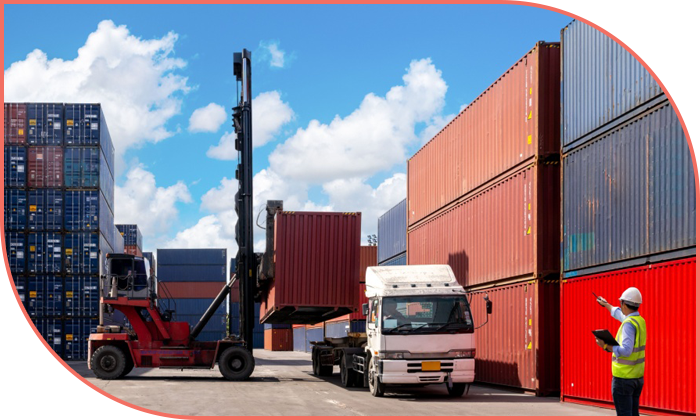Port of Tianjin
Importing from Tianjin to the UK
Located on the western coast of the Bohai Gulf at the estuary of the Haihe River, approximately 170 km from Beijing, Tianjin Harbor stands as China’s largest man-made port.
One of the prominent districts is the Tianjin Economic-Technological Development Area (TEDA). Located in the Binhai New Area, TEDA is home to over 3,300 foreign-invested enterprises and specialises in industries such as electronics, machinery and automobiles.
Another significant district is the Tianjin Port Bonded Zone, which was established as the first free bonded zone in northern China. It focuses on industrial clusters such as large-scale mechanical equipment, aviation manufacturing, auto parts and new materials.
What are FOB and EXW terms?
FOB (Free on Board)
Under FOB terms, the seller is responsible for delivering the goods to the nearest port and covering all costs and risks until the goods are loaded onto the shipping vessel.
Once the goods are loaded, the responsibility shifts to you, the buyer. Consequently, you will need to take care of all expenses associated with importing, including customs clearance fees and transportation from the original port to your final destination.
EXW (Ex Works)
The EXW incoterm requires the seller to make the goods available at their premises, such as a warehouse or factory.
In this case, the buyer assumes minimal responsibility from the seller. The buyer is in charge of managing all export and import procedures, such as customs clearance, insurance, loading the goods, and transportation.

Compare Ocean Freight Shipping Rates in Seconds
Get instant quotes from leading ocean freight providers. Find the best rates for your shipping needs in one place.
Sea Freight service options from Tianjin to the UK
Less-than-Container Load (LCL):
In contrast, importers with smaller cargo volumes can opt for this method, where they share container space with other shippers since their goods do not occupy an entire container on their own.
Full Container Load (FCL):
This alternative allows importers to have an entire container exclusively for their cargo, ensuring that their goods are the sole occupants of the container.
Do you need an export licence?

The Ministry of Commerce (MoC) classifies products into three categories: authorised goods, controlled goods, and prohibited goods.
Export permits issued by the MoC include information about the seller(s), purchaser(s), shipment, price, and mode of transportation.
Permits are essential for exporting controlled goods. Chinese Foreign Trade Companies (FTC) that export to UK branches must also obtain a permit. Nevertheless, conducting business with an international vendor in foreign countries (FOBs) does not require a permit.
Required documents to clear customs
In order for UK customs to clear your imported products, it is essential for shippers to ensure that they have the required documentation prepared. This includes a commercial invoice, an import licence (if applicable), a Bill of Lading (BL), an EORI number, and a packing list.
Get The Best Sea Freight Rates Today
Easily compare rates from top ocean freight carriers. Save time and money on your next shipment.